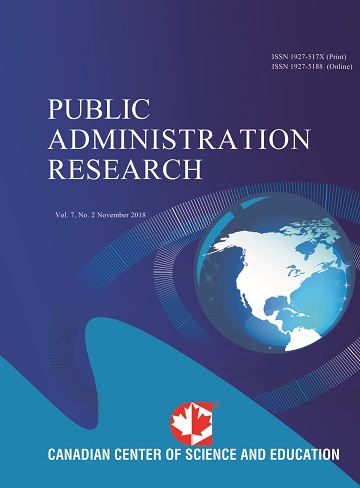Factors Affecting Satisfaction with Antenatal Services in Nigeria
- Amos Oluwasayo Akinremi
Abstract
Patient satisfaction is crucial to the development of healthcare quality improvement strategies. It is documented to be a multidimensional phenomenon regardless of the context from which it is being studied. The essence of evaluating patient satisfaction with healthcare services is well established. It can help to spot the aspect of service delivery processes that needs to be improved upon to deliver quality care. Patient satisfaction can be defined as a level of patient experience in accordance with her expectations. A higher proportion of the past studies had examined the influence of patient characteristics on satisfaction, while limited studies had investigated the effect of service characteristics or attributes of care on it. The purpose of this study therefore was to investigate the extent to which service characteristics influence satisfaction with antenatal services in Nigeria. It tested three hypotheses proposed in line with healthcare quality theory to provide answers to the question of “does interpersonal manner, self-reported health status, and perceived technical competence affect satisfaction with antenatal services?”. The study adopted a quantitative methodology with cross-sectional study design to examine the relationships. Two private hospitals and two public hospitals in the city of Abeokuta from Nigeria were randomly selected, followed by exit interview of one hundred pregnant women who visited the antenatal clinics of selected facilities on a routine follow-up basis. They reported their overall satisfaction with the care, and their perceptions on interpersonal manner of the nurses, health status, and technical competence on a 5-point Likert scale. The mean age was 29.92 years ± standard deviation of 4.32 years. The mean overall satisfaction score was 4.22 ± 0.86. The regression model supported the proposed hypothesis as three predictors of patient satisfaction were identified as interpersonal manner of nurses, self-reported health status, and perceived technical competence.
- Full Text:
 PDF
PDF
- DOI:10.5539/par.v14n1p69
Journal Metrics
h-index (2017): 7
i10-index (2017): 6
h5-index (2017): 7
h5-median (2017): 13
Index
- COPAC
- CrossRef
- DTU Library
- EBSCOhost
- EuroPub Database
- Excellence in Research for Australia (ERA)
- Genamics JournalSeek
- Ghent University Library
- Google Scholar
- Harvard Library
- Infotrieve
- Jisc Library Hub Discover
- LOCKSS
- Mir@bel
- Norwegian Centre for Research Data (NSD)
- Open J-Gate
- PKP Open Archives Harvester
- Publons
- ROAD
- Scilit
- SHERPA/RoMEO
- Stanford Libraries
- Ulrich's
- UniCat
- Universe Digital Library
- UoS Library
- WorldCat
Contact
- Gabriel TaiEditorial Assistant
- par@ccsenet.org
